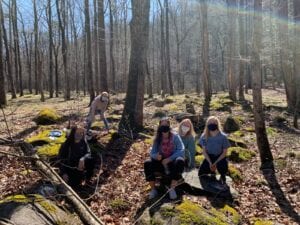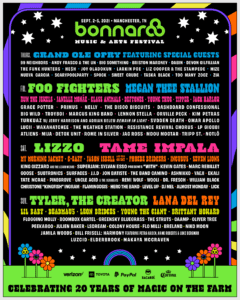‘Alive After Five’ shows progressive nature of blues through tribute
The Knoxville Museum of Art’s “Alive After Five” event on Feb. 26,” Wild Women Don’t Have the Blues,” paid tribute to blues songstress and Knoxville native Ida Cox.

Photo by knoxvillearts, obtained by Wikimedia Commons through creativecommons.org https://commons.wikimedia.org/wiki/File:Knoxville_Museum_of_Art_2014.jpg
[title_box title=”‘Alive After Five’ shows progressive nature of blues through tribute”]
Crystal Shawanda, a Native American country turned blues singer, honored the memory of Ida Cox, a famous black blues songstress, on Friday evening at the Knoxville Museum of Art’s “Alive After Five” event. In the midst of Black History Month, the event was named “Wild Women Don’t Have the Blues” after one of Cox’s albums from the end of her career.
Shawanda, a native Canadian now residing in Nashville, stepped out in a black glitter garment with silver toned heels to match, setting the mood for her upcoming performance.
Despite her soulful influences, Shawanda is a voice of her own with a deep appreciation for those who came before her.
The event offered plenty of catering and mingling opportunities however during the performance most audience members chose to dance to the sultry notes performed by Shawanda and her band. The songs performed varied from Etta James’ “I’d Rather Go Blind” to the Weeknd’s “Earned It.”
The ranges of influences in Shawanda’s career were openly expressed through her performance with each song selection. Shawanda said she participated in this event dedicated to Ida Cox because it seemed destined.
“I was very excited about [the invitation for the event] because for me, even though I started out in country music, I was secretly always a fan of the blues and blues women,” Shawanda said. “These are the women who kind of led me to where I’m at right now, so it’s really fitting.”
The singer, who has been performing since the age of 6, stated that her country music career was very prosperous, but her heart had always been in the soul of the blues. Although she only recently began her blues career, the essence of the blues genre had a great influence on Shawanda at an early age.
The singer said that her brother is her main influence as he started it all by playing records of artists like Muddy Waters, Bessie Smith and Etta James.
“I would sit at the top of the stairs, and I would listen,” Shawanda Said. “I was immediately drawn to, I guess the only way that I could to say it is, it was like you could hear their heart breaking through their voices, through the music.”
Despite Cox not being able to physically be in attendance for this honor, Shawanda acknowledged the hard work that blues women before her time put into their craft.
“You know, it’s their songs, it’s their stories, it’s their struggle,” said Shawanda. “They’re warrior women and you think about the time that they came in and it was a lot more difficult back then. I always remind myself of that in the current day. “
Although there is a distinct age gap and a cultural difference between Cox and Shawanda, they fit the same demographic as being women of color with a message. Despite her career being based in America, Shawanda said that she, sometimes unknowingly, adds certain aspects of her Native American culture into her music, creating her own genre of blues. She also draws attention to underlying issues in her community such as missing and murdered Aboriginal women.
“Even though I don’t mean to, sometimes, you know, those rhythms come out in the songs that I write today and I won’t notice it till later and I’ll say, ‘Oh I didn’t realize that! It kind of has that same rhythm as like a pow wow song,'” Shawanda said. “And when I’m producing albums, I find ways of incorporating parts of my culture into the music, whether people realize it or not.”
Edited by Sam Maneri
Featured image by Knoxvillearts on Wikimedia Commons, obtained using creativecommons.org



